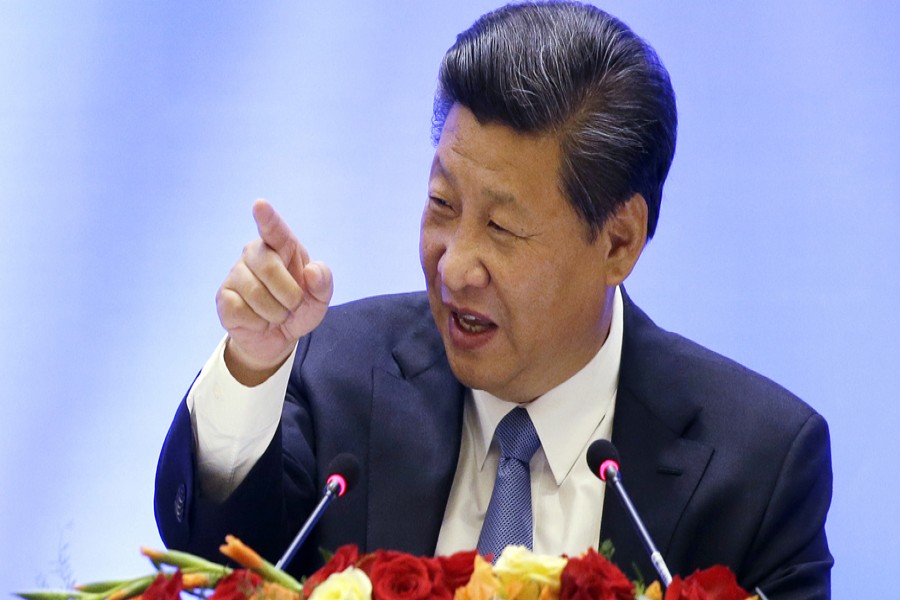After decades of speedy advances, China is shifting its economic focus to high-quality development, with "developing a modernised economy" high on the agenda. Now an economic catchphrase, the idea provides a blueprint for the world's second largest economy during the next five years and beyond. It will be embodied in innovation-driven industries with coordinated development, an open and fair market, efficient and fair income distribution, coordinated urban-rural and regional development, energy conservation and environmental friendliness, and an open economy with higher standards. Efforts will be made to give full play to the role of the market, while the government is expected to play a better part, reports Xinhua.
The real economy, once outshone by rampant real estate prices and financial speculation, has again gained traction.
While presiding over a group study of the Political Bureau of the CPC Central Committee, General Secretary of the CPC Central Committee Xi Jinping described the real economy as the foundation of the modernized economy, advocating the use of new technology including the internet, big data and artificial intelligence to boost traditional industries. To develop a modernised economy, China should channel more energy into improving the quality of supply and grow into a manufacturing powerhouse, said Wang Yiming, deputy director of the Development Research Center of the State Council.
The government has rolled out an array of measures such as "Made in China 2025" and "Internet Plus" strategies.
Funds that used to flow into the virtual economy due to high yields are returning to factories that produce tangible goods. New loans in the real economy rose 11.34 per cent to 13.84 trillion yuan (around 2.2 trillion U.S. dollars) last year.
Thanks to rising investment, innovators sprouting up across the country are injecting new vitality into the economy. More homegrown tech firms are transforming from followers to leaders in the international tech community. Technology is playing a bigger role in driving the economy. Tech is estimated to have contributed 57.5 per cent to economic growth last year, up from 56.2 per cent in 2016, according to Wang Zhigang, vice minister of science and technology.
During the group study, Xi called for a diverse, balanced, secure and efficient system for opening up on all fronts, with better use of global resources and markets and promotion of international cooperation under the Belt and Road Initiative.
As 2018 is the 40th anniversary of China's reform and opening up policy, the country's door to the world will only become more open. At the World Economic Forum annual meeting in January, senior Chinese official Liu He said more measures are in the pipeline to further open the country's finance, manufacturing and service sectors, and step up protection of intellectual property.
The Chinese government has been striving to ease market access for foreign investment and build a level playing field for players from home and abroad. Foreign direct investment in the Chinese mainland hit an all-time high of 878 billion yuan last year, with 35,652 foreign-funded businesses established.
China has promised to boost imports, announcing plans to purchase more than 10 trillion U.S. dollars of goods and services in the next five years. The first China International Import Expo will be held in Shanghai in November, which is expected to bring together thousands of enterprises from more than 100 countries.


